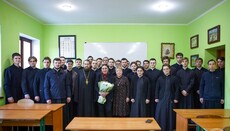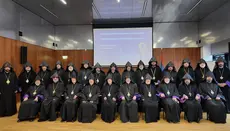Religious people are more likely to help the needy, – research

In the problem, a shipwreck had left two people, called Friday and Robinson, stranded on neighbouring islands – Island A and Island B, respectively. Each island had 12 fruit plants, each of which could only be consumed by one person. Robinson could only get 20 fruit from each plant, but he could visit both islands. In contrast, Friday could harvest 120 fruit from each plant, but had to remain on his island.
Participants were asked to pick the fairest way to divide up the plants from three options, which actually represented three different political theories of distribution. The egalitarian option flattened out differences to produce equality for all, while the utilitarian option left one person with more fruit as long as there was a net high total value. Finally, the third option reduced inequality by benefitting the worse off.
The results showed that non-religious people were more likely to choose the egalitarian approach, with 38 per cent choosing it, compared to just 25 per cent of religious people. Meanwhile, 55 per cent of religious people chose the third option, versus 43 per cent of non-believers. This left just 19 per cent of non-believers choosing the utilitarian option, and 20 per cent of religious people.
The researchers speculate that as religious people have more faith in a just world, they are more likely to choose the third option.
0
0
If you notice an error, select the required text and press Ctrl+Enter or Submit an error to report it to the editors.
Read also

Priests and laity of Rivne Eparchy donate blood for children with cancer
20 February 21:06

Kyiv seminary students meet with People’s Artist Larisa Kadochnikova
20 February 20:30

Bancheny Monastery reports provocation
20 February 20:14

Romanian Church to hold joint prayer for peace in Ukraine
20 February 16:46

Armenian bishops call on authorities to stop Church persecution
20 February 16:07






